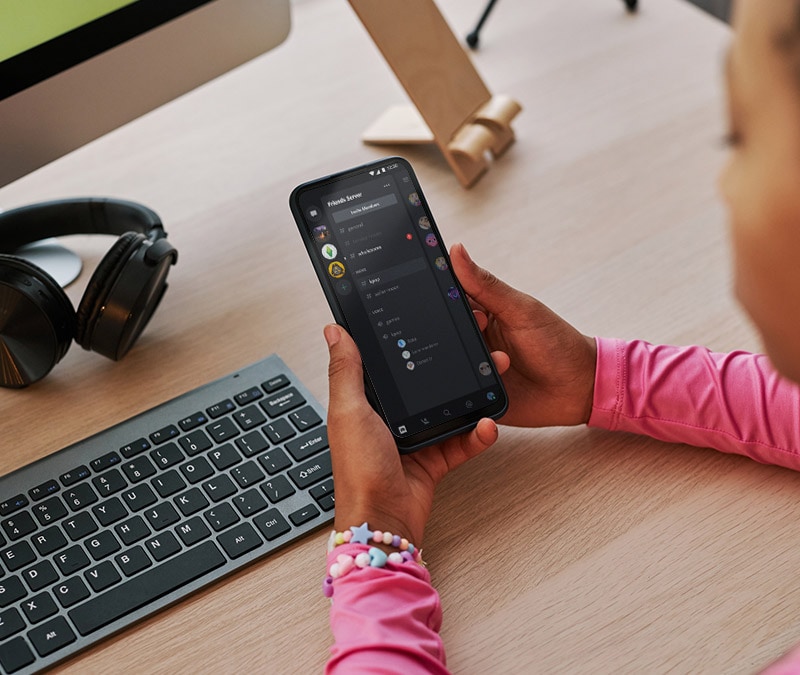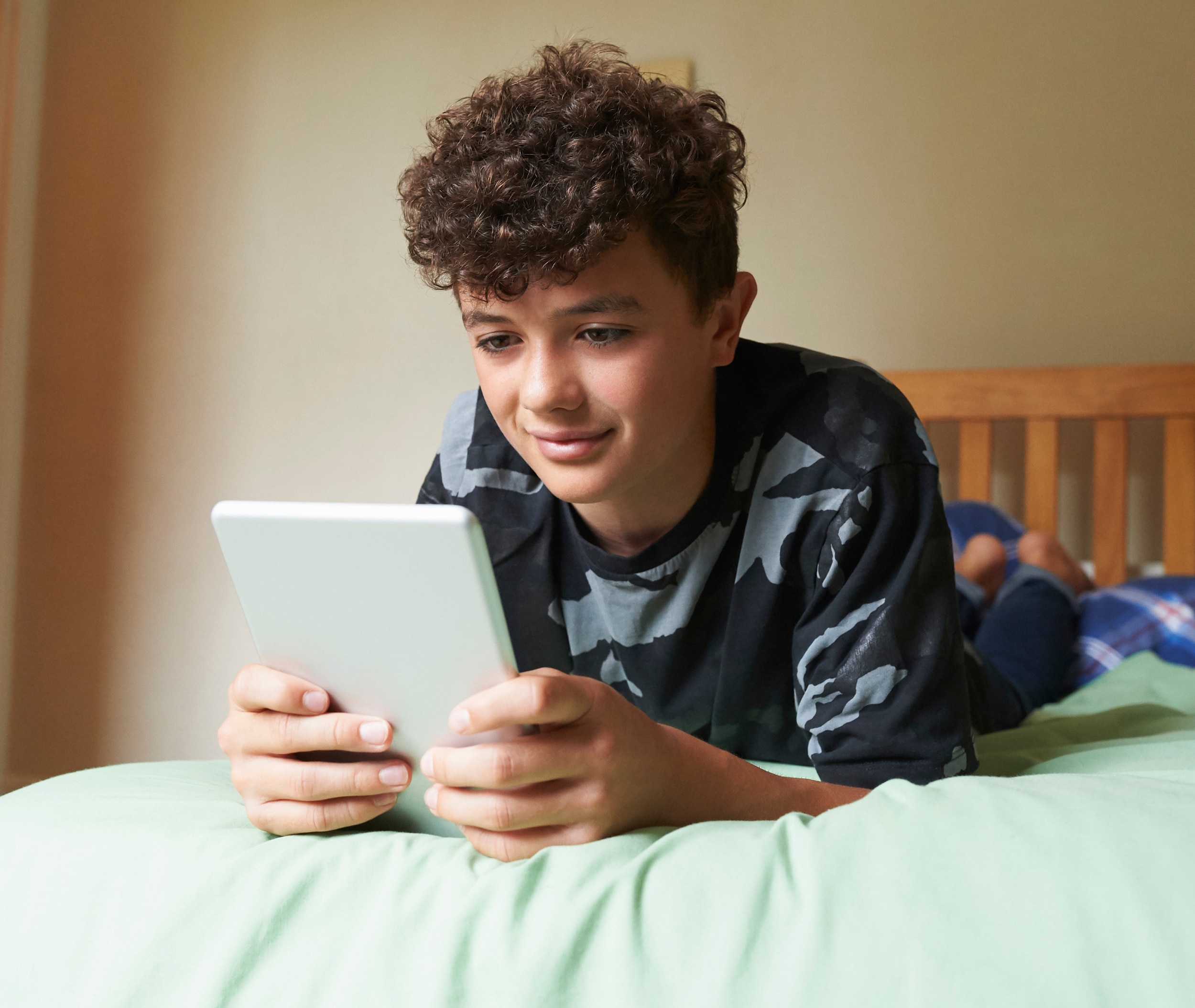10 reasons to get parental controls
Parents face a challenge: weighing the pros and cons of giving their children digital freedom. Here’s how parental controls can help.

Parents are raising a new generation of techie kids. Toddlers use tablets and teens text to communicate. Also, most schools have integrated computers and tablets into their curriculum. Parents allow their children and teens to have a cell phone because it’s a great way to stay in touch with them. It also gives parents a sense of where their children are and what they could be up to.
Parents face a challenge: weighing the pros and cons of giving their children digital freedom and defining the boundaries of that freedom. Most parents understand that limiting children’s access to the internet could affect their ability to learn and develop. But this also means exposing children to online threats and content that may go beyond their capacity to handle.
That’s why installing robust security software with parental controls on all devices can help parents and their kids to navigate the digital world around them. Just as you teach your child to lock all doors when they are alone at home, they should also learn to use a security system on their devices.
10 reasons to use parental controls
There are dozens of reasons to buy and set up parental controls on all your child’s devices. Here are 10.
1. Parental controls help monitor your kids’ devices
While your kids are learning to be good online citizens and make friends online, you can do your part by keeping tabs on their iPads, iPhones and other devices. Check your app store for options. Parental controls apps can help you monitor emails, social media profiles, texts, and other mobile functions.
These help when you’re especially concerned about problematic conversations or activities. For example, some apps notify you when it detects certain words such as “drugs.” It’s best if you let your kids know when you're monitoring their devices, especially since you'll need your kid’s account information, including passwords, for some of the features.
2. Parental controls allow you to manage what your kids find on search engines
Search engines can help you find anything these days. The problem? Access to infinite content may be inappropriate for some kids, depending on their age and stage of development. Parental controls such as Google's SafeSearch help you block adult content and explicit images, videos, and websites from search results.
Depending on the program, you may need to use the most up-to-date operating system and log in under customized user profiles. Let your kids know when you use these filters and talk to them about inappropriate and age-appropriate content. They should know to come talk to you or a trusted adult whenever they need to.
3. Parental controls can block certain features of games your kids can access
Many gaming consoles come with internet access that allow your kids to surf the web, make in-app purchases, and talk with other players. While these features can make the games more fun, you might not want your kid using credit cards connected to the account or talking with strangers.
Parental controls let you to set up user profiles where your kids can only access certain features or allow you to monitor what they're doing while using the game.
4. Parental controls may allow you to track your kids’ location
GPS apps can help your whole family track each other's locations. These help indicate your kids are safe — and where they’re supposed to be — and help you find them in emergencies.
Typically, your phones will need to be turned on for the GPS tracking or location feature to work. However, it’s still a good idea to talk with your children about safety measures. Ask them to avoid tagging or posting their location on social networks — in case strangers can access the information — and help them set up privacy settings.
5. Parental controls help establish good cyber safety habits
Cybercrime is a multibillion-dollar industry, and cybercriminals often prey on people’s poor cyber habits.
A child’s brain is constantly developing and learning new things. In their quest to know more, they may inadvertently engage in risky online behavior, like disclosing too much information, such as their school name or date of birth. This could mean compromising their own safety, as well as the safety of others.
6. Parental controls can set screen time limits
Screen time can be addictive. It can mesmerize an adult into spending hours glued to a device while they are mentally detached from their physical surroundings. Compared to an adult, a child may have a tougher time breaking free from their favorite show or game.
Excessive screen time for kids can result in bad posture, poor eyesight, inadequate sleep, and lack of physical activity. Parents might consider trying to enforce a healthy lifestyle by limiting screen time for their children and themselves.
Parental control features can help set boundaries by setting time limits on the types of media children engage with and for how long. Designate media-free time and initiate activities like taking a walk, driving around, or playing a game.
7. Parental controls can help defend online reputation
Kids flood the internet with social media posts and pictures from weekends and vacations. Many of these innocent posts go unnoticed. But a Google search is often all it takes to make a quick assessment of a person based on what they’ve shared online.
Many colleges and companies perform searches on public social media pages to find information about potential candidates online. These organizations may decide whether to accept or hire a person partially based on what is found there.
Consider monitoring social media by checking the security and privacy settings on each of your child’s accounts. Most sites will allow you to control who sees your posts, and if not, they usually have the option for you to make an account private.
8. Parental controls can help back up data
Children sometimes use the internet to complete school projects and homework. It’s very important to back up their data in a safe and reliable place.
Teach children the importance of saving and storing data. Many free software programs are available online that offer storage services. But some of them could possibly be infected with malware and viruses.
Kids also have a collection of memories in the form of photos, texts, and emails that they want to save for the future. Backup is important. Phones fall in water, they break, they get lost or stolen, or they simply die a natural death. Make sure you protect their digital memories with a secure backup.
9. Parental controls can teach cyber etiquette
Proper decision-making is a cognitive skill that develops alongside positive parenting techniques. Help your child navigate the digital landscape with the same etiquette you would expect from them in the real world. Instill in them the value of good behavior, both offline and online.
Explain to young people the consequences of cyberbullying, owning and distributing pornographic material, and unethical hacking. Let them know that there are laws that protect victims of such crimes.
10. Parental controls should be customizable
Blocking content, tracking whereabouts and setting screen time limits can be great for the whole family. But not every family member needs this level of control, or at least not all of the time.
Many parental control functions allow you to set up different profiles so each family member can access online content that is a level appropriate to them.
Norton parental controls
Having parental controls software installed on all your internet-connected devices is a great way to help regulate your children’s online habits. For instance, security software like Norton 360 Deluxe comes with range of features that make it easier for busy parents to help their kids explore, learn, and enjoy their connected world safely.
Consider investing in a good security suite and teach your kids the importance of safety and common sense when exploring the online world.

Try Norton 360 FREE 7-Day Trial* - Includes Norton VPN
7 days of FREE* comprehensive antivirus, device security and online privacy with Norton VPN.
Join today. Cancel anytime.
*Terms Apply
Editorial note: Our articles provide educational information for you. Our offerings may not cover or protect against every type of crime, fraud, or threat we write about. Our goal is to increase awareness about Cyber Safety. Please review complete Terms during enrollment or setup. Remember that no one can prevent all identity theft or cybercrime, and that LifeLock does not monitor all transactions at all businesses. The Norton and LifeLock brands are part of Gen Digital Inc.





Want more?
Follow us for all the latest news, tips, and updates.